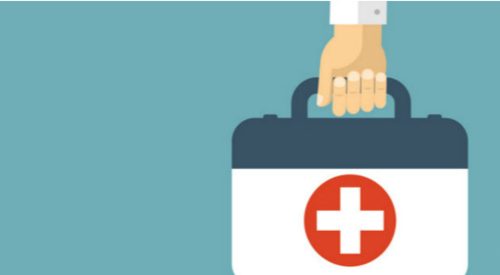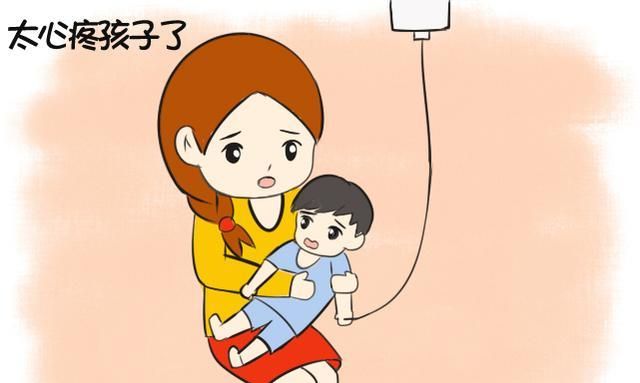本文目录
看病用英语怎么说
看病的英文:see a doctor、treat
一、see a doctor
英 [si: ə ˈdɔktə] 美 [si e ˈdɑktɚ]
v.看医生;瞧病
I took your advice and went to see a doctor.
我服从你的意见去看了病。
二、treat
英 [tri:t] 美 [trit]
v.治疗;对待;处理;款待;看病
He is doing all he can to find good doctors to treat his wife
他千方百计地请好大夫给妻子看病。

扩展资料
相关词:
一、get ill
英 [ɡet il] 美 [ɡɛt ɪl]
生病
I fear that he will get ill.
我担心他要生病了
二、get sick
英 [ɡet sik] 美 [ɡɛt sɪk]
生病
To eat putrid food is liable to get sick.
吃了腐败的食物容易生病。
医生的常用语句是什么?
医生常用英语语句
导语:医生,掌握医药卫生知识,从事疾病预防和治疗的专业人员的统称。医生看病的`时候,一般会叫病人做一些相关动作来证实病情,下面是我收集整理的医生常用英语语句,欢迎参考!

1、Let me take a look in your ears, first.
首先,让我看一下你的耳朵。
2、Now let me examine your nose.
现在让我检查你的鼻子。
3、Look right at me,please.
请看着我。
4、Now open your mouth.
现在张开你的嘴。
5、Open it just as wide as you can.
尽量把嘴张大。
6、I'm not going to do anything to hurt you.
我不会使你感到疼痛。
7、Lift your tongue up to the roof of your mouth.
把你的舌头抬到上腭。
8、Now let your tongue down.
现在把你的舌头放下来。
9、Just breathe easily through your mouth.
只用嘴轻轻地呼吸。
10、Please say,"Ah'.
"请说"啊"。
11、Now I want to look in your throat with my mirror.
现在我要用喉镜检查你的咽喉。
12、Would you come toward me just a little?
稍向我靠近一点好吗?
13、Stick your tongue way out.
把你的舌头伸出来。
14、Look at the ceiling.
看天花板。
1、What's the matter?
什么事?
2、What's your complaint?
什么病?
3、What can I do for you?
我能效劳什么?
4、Is there anything wrong?
有什么不对劲吗?
5、What exactly is wrong?
到底有什么不对劲呢?
6、What symptoms do you have?
你有什么症状?
7、Is there anything particularly unusual?
有什么特别不一样的吗?
8、What's the trouble?
什么毛病?
9、When did it happen?
是什么时候发生的?
10、Since when has it hurt?
受伤多久了?
11、Since when?
从什么时候?
12、When did this start?
从什么时候开始的?
13、When did you start having this problem?
你从什么时候开始有这毛病的?
14、When did this trouble start?
这毛病是从什么时候开始的?
15、How long has it been bothering you?
这困扰你有多久了?
16、Do you have a fever?
你发烧吗?
17、Do you have a cold?
你着凉了吗?
18、Do you have severe headaches?
你头痛得厉害吗?
19、Do you have a sore throat?
你喉咙痛吗?
20、Do you feel chilly?
你觉得冷吗?
21、Do you feel nauseous?
你想吐吗?
22、Do you have diarrhea?
你拉痢疾吗?
23、Have you ever coughed up blood or bloody phlegm?
你曾咳出血或痰中带血吗?
24、Have you passed blood in your urine?
你小便带血吗?
25、Are you taking any medicine regularly?
你通常吃什么药吗?
26、Do you have any allergies?
你有什么过敏反应吗?
27、How is your appetite?
你食欲如何?
28、Do you often drink alcohol?
你常喝酒吗?
29、Can you walk?
你能走路吗?
;看病常用的英语句子和句型
医生病人英语会话P: I would like to have a check-up for a driving licence (swiming pass).
我要做驾驶查体(游泳查体)。
N: You need to have your eyes, ears and blood pressure checkd. You need to have a fluoroscopy done.
你需要检查一下眼睛、耳朵和血压。你需要做透视检查。
P: The doctor needs my weight, pleas weigh me.
医生要我的体重,请给我量一下。
N: Please bring a photograph of yourself, we have to affix a stamp on the corner of it.
请带一张你的照片来,我们要在它的角上盖个印儿。
P: The doctor suggested I have a series of gastro-intestinal tests made. What shall I do?
医生建议我做个胃肠造影。我该怎样做呢?
N: I'll make an appointment for you at once. Come next Friday morning at 8 o'clock. Please don't eat or drink any thing after midnight.
我现在就给你约定。下星期五早晨8点钟来。到后半夜就不要再吃东西或喝水了。
P: Not even water?
水也不行吗?
N: A sip of water is all right.
小口水还是可以的。
P: Where can I get the certificate stamped?
我这证明在哪儿盖章呢?
N: Right here. I'11 do it for you.
就在这儿。我来给你盖。
P: If it is an emergency case, we can come at any time, can't we? Or should we phone first?
如果病情危重,我们随时都可以来,是吗?还要先打个电话不?
N: If you have the time better notify us befor you come.
假如有时间,最好来之前打个电话。
Have you had your lungs x-raged this year?
这一年内你照过胸部X线片吗?
P: When can I get the result?
我什么时候能知道检查结果?
N: Right away.
马上就可以。
In two days.
两天以后。
Next Monday.
下星期一。
P: May I ask our interpreter to phone for the result?
可以请我们翻译打电话问结果吗?
N: Yes you may. You can have all the results next Monday when you come to see the doctor.
是的,可以。 你下星期一看病的时候,所有的结果都会出来的。
P: The paper for the driving licence need my height.
驾驶执照上要有我的身高。
N: DO you know your height in centimeters?
你知道你身高多少厘米吗。
P: No I don't know.I measure five feet eleven inches.
不知道,我的身高是5英尺11英寸。
N: OK! I'11 calculate it for you. That's one hundred and seventy-seven point five centimeters.
好,我替你算算。这就是 177.5厘米。
lf the patient is too weak, we can do home visit. Our doctor and nurse can go to the patient's home by our ambulance. In case the patient needs to be hospitalized, we shall bring him(her) back.
假如病人太弱,我们可以出诊。我们的医生和护土可以乘我们的救护车到病人家去。假如病人需要住院,我们就把他(她)带回医院来。
I'11 take some blood from your arm. Please take off your coat and roll up your sleeve.
我要从你的手臂上取点血。请脱掉上衣,卷起袖子。
I'11 take some blood from your ear. Please take off your ear ring.
我要从你的耳朵上取点血。请摘下你的耳环。
Your veins don't stand out very clearly. I'11 try to do it care.Be patient.Please clench your fist.
你的静脉不明显,我需要仔细找找。请耐心些。请你握拳。
Pleas open your hand. Press it with this bit of cotton wool for a while.
请张开手,用这块棉花压一会儿。
I'll do a skin test first to see if you have any sensitivity.
我要先给你做个皮肤试验看看你有无过敏现象。
Since you are sensitive to the anti-tetanus serum, we will have to give it to youin fonr doses, at an interval of twenty minutes.
由于你对破伤风抗毒素过敏,我们要分四次注射,每次相隔20分钟。
P: How often should I have the injection?
这针多久注射一次?
N: Once a day(twice a day).
每天一次(每天两次)。
P: Where do you give it?
在哪个部位注射呢?
N: In the buttocks(in the arm).
在臀部(在手臂上)。
P: I discovered a lump on my buttock yesterday. What shall I do?
我昨天发现我的臀部有个硬块。该怎么办呢?
N: Let me have a look.Better put hot towels on it. Two times a day for fifteen minutes, If It doesn't get better, we'11 try ghysiotherapy.
让我看一下。最好用热手巾敷。一天敷两次,每次15分钟。假若不见好,我们可以做做理疗。
Patient: How do I take these medicines?
我怎样服这些药呢?
Pharmacist: One tablet, threetimes a day.
一天三次,一次一片。
Two tablets, four times a day.
一天四次,一次两片。
two tablets at night.
晚上服两片。
Take one tablet of this pain-killer if you feel pain, but not more than once every four hours.
假如你觉着疼就吃一片止痛片,但每次必须间隔四个小时。
One line (half line) three times a day. Shake it well before taking it.
每天三次,每次一(半)格。服前先摇匀。
Please put it under your togue, don't swallow it.
把药放在舌头底下,不要往下咽。
Please suck It.
请含服。
Please dissolve the pill in water before taking it.
服前请将药丸放在水中溶化。
One teaspoon three times a day.
每天三次,每次一茶匙。
P: How do I use this suppsitory?
我怎样用这栓剂?
Ph: Inset one into your anus (vagina) every night.
每晚塞一个在肛门(阴道)内。
P: Is this for internal use too?
这也是内服药吗?
Ph: This is for gargling only.
这是含漱剂。
This will loosen your stools. Please squeeze it into your anus every night.
这是通大便的。请每晚在肛门里挤一些。
This is a special adhesive for easing the pain. Apply it to the painful area and change it every two day.
这是专为止痛用的药膏。贴在痛处,两天换一次。
Apply some of the ointment, and rub it into the skin.
涂一些这种药膏并揉进皮肤里去。
Paint this lotion to the itching spot with this small blush (cotton swab).
用小刷子(棉花棍)把洗剂涂在痒处。
Please dissolve the tablet(powder) in hot water. Soak your hand(foot) in it for twenty minutes twice a day.
请将这药片(药粉)溶化在热水里。将你的手(脚)泡在里面,每日两次,每次20分钟。
P: How do I use these eye-drops and ointment?
我怎样使用这些眼药水和眼药膏呢?
Ph: Put the eye-drops into your right eye 4-6 tims a day, each time one to two deops. Squeeze a bit of the ointment on your eyelid every night.
将这种眼药水滴入右眼,每天四至六次,每次一、两滴,每晚在眼皮里挤一点眼药膏。
P: How do I apply the nose drops?
我怎样使用这滴鼻剂呢?
Ph: Bend your head back as far as possible and then put them in.
尽量把头向后仰然后将药滴进去。
P: How do I apply the ear drops?
我怎样使用滴耳剂呢?
Ph: Turn your head to the side, put one to two drops in your ear. Press the tragus for a few seconds.
将头歪向一侧,在耳朵里滴一、两滴药水,再把耳屏按几秒钟。
P: How do I take(make) the herb medicine?
我怎样服(熬)中药呢?
Ph: Put herbs into a pot. Add about 300c.c.of cold water. Simmer gently for 20 minutes. Drain the solution. The amount left will be 40 to 50 c.c.This is the first dose. Don't throw the heabs away. DO the same in the evening. That is the second dose. Take the first dose in the morning, the second in the evening.
把草药放进锅内。加入 300毫升冷水.用慢(文)火煎 20分钟。将药水滗出,约 40-50毫升。这是头煎。不要将药扔掉。仍照原法下午再煎一次,这是二煎。头煎早晨服,二煎晚上服。
We can make the solution for you for six days. Take one bottle daily, half in the moning, half in the evening. Please put them in the refrigerator or keep them in a very cool place. Don't take the medicine while it is cold.
我们可以给你煎出六天的药。每天服一瓶上午半瓶,下午半瓶。瓶子要放在冰箱里或是放在凉爽的地方。不能服冷药。
P: Must I boil it before taking it?
每次服以前要将它煮开吗?
Ph: No. Put it in a glass and warm it in a bowL of hot water.
不必。可以将药盛在玻璃杯里,将它放在一碗热水中加温。
P: How do I take these big balls?
这些大药丸儿怎么服呢?
Ph: Chew and swallow the bits with water or put them in water to melt them. Remove the wax before taking it.
把它掰成小块,嚼后用水咽下,或者把它泡在水里化开再喝。服前把蜡皮去掉。不必。可以将药盛在玻璃杯里,将它放在一碗热水中加温。 He feels light-headed.
他觉得头晕。 She has been shut-in for a few days.
她生病在家几天了。 Her head is pounding.
她头痛。 His symptoms include loss of appetite, weight loss, excessive fatigue, fever and chills.
他的症状有食欲和体重减轻、非常疲倦、发烧和发冷。 He feels exhausted or fatigued most of the time.
他大部份时间都觉得非常疲倦。 He has been lacking in energy for some time.
他感到虚弱有段时间了。 He feels drowsy, dizzy and nauseated.
他觉得昏昏欲睡,头晕目眩和想吐。 He feels as though everything around him is spinning.
他感到周围的东西都在打转。 He has noticed some loss of hearing.
他发觉耞力差些。 She has some pains and itching around her eyes.
她眼睛四周又痛又痒。
2、伤风感冒 He has been coughing up rusty or greenish-yellow phlegm.
他咳嗽带有绿黄色的痰。 His eyes feel itchy and he has been sneezing.
他眼睛发痒,而且一直在打喷嚏。
He has a fever, aching muscles and hacking cough.
他有发烧,筋骨酸痛和常常咳嗽。 hacking = constant。 He coughed with sputum and feeling of malaise.
他咳嗽有浓痰,而且觉得很虚弱。 malaise = debility。 He gets a cold with a deep hacking cough.
他伤风咳嗽。 He has a headache, aching bones and joints.
他头痛,骨头、关节也痛。 He has a persistent cough.
他不停地在咳。 He has bouts of uncontrollable coughing.
他一阵阵的咳嗽,难以控制。
He has hoarse and has lost his voice sometimes.
他声音嘶哑,有时失声。 He has a sore throat and a stuffy nose.
他嗓子疼痛而且鼻子不通。 His breathing is harsh and wheezy.
他呼吸时,有气喘似的呼哧呼哧作响。 He has a stabbing pain that comes on suddenly in one or both temples.
有时突然间太阳穴刺痛。 He has a runny nose, sneezing or a scratchy throat.
他流鼻水,打喷嚏和喉咙沙哑。
His both hands and feet ache all over.
他两手两脚都很酸痛。 He has pain on the sole of his feet.
他脚底很痛。 There is a wart-like lump on the sole of right foot.
我右脚底有个像肉疣般的硬块。
His ankles look puffy and they pit when he presses them with his finger.
他的足踝好象肿了,用手按,就有小坑痕。 pit = small dent form 句里的 they 和 them 都是指 ankles。 The pain in his left foot is accompanied by redness and swelling.
左脚酸痛,并有红肿。 The joints near his fingernails and knuckles look swollen.
指头和指节旁边的关节,似乎有肿大。 He has numbness and tingling in his hands and fingers.
他的手和指头感到麻木和刺痛。 His legs become painful following strenuous exercise.
激烈运动后,他的腿就痛。 His knee is misshapen or unable to move.
他的膝盖有点畸形,也不能动。 There are some swellings in his armpit.
他的腋窝肿大。 He is troubled with painful muscles and joints.
他的筋骨和关节都痛。 She is troubled by the pains in the back and shoulders.
她的后背和肩膀都痛。 His knee has been bothering him for some time.
他的膝盖不舒服,已有一段时间了。
5、睡眠不好 He is sleeping poorly.
他睡不好 He has difficulty in sleeping, inability to concentrate.
他不易入睡,也难集中精神。 It is usually hard for her to fall asleep when she goes to bed at night.
她晚上就寝,很难入睡。
He wakes during the night or early morning and finds it difficult to fall asleep again.
他晚间或清早醒来后,再也不能入睡。
He has nightmares occasionally.
他有时做噩梦。

地名两个字英文怎么写
您好,“看病”用英语表达是“see adoctor”。
注意:不能说see the disease哦!

以上就是关于看病的常用表达,看病用英语怎么说的全部内容,以及看病的常用表达 的相关内容,希望能够帮到您。

